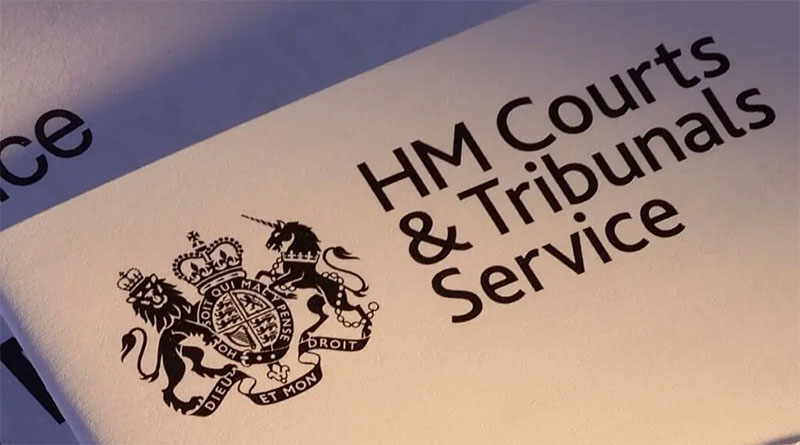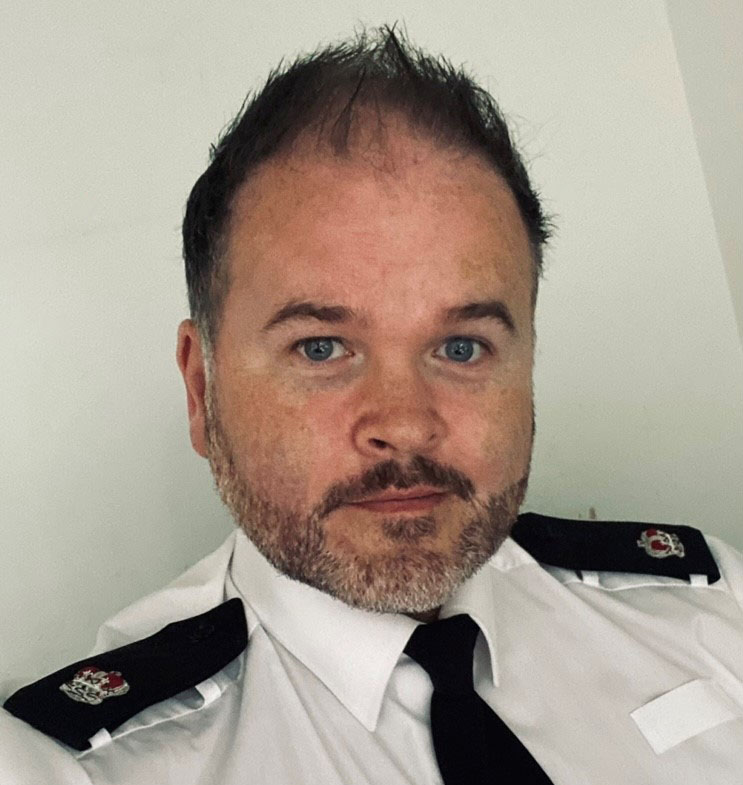Why do neurodivergent police officers and staff resort to legal action against their employers?

by John Nelson
Chair | National Police Autism Association
In December 2023, the People Management website published an article on an Employment Tribunal case involving Lauren Crawford, an autistic and dyslexic police officer from Cumbria Constabulary who had won a case of direct discrimination against her employer. This case was notable as being one of the first – if not the first – widely-reported neurodiversity-related cases involving a police force. It probably won’t be the last.
Employment tribunals – civil legal cases arising from disputes over unlawful treatment under the Equality Act, and other breaches of employment law – are something of a taboo subject in policing. Accurate figures on the number and nature of disputes involving protected characteristics are difficult to assess due to the common practice of cases being settled out-of-court, typically with a non-disclosure agreement as part of the settlement – it is estimated that cases that go to court typically cost a Force in excess of £100,000, regardless of outcome. The corporate stigma around ETs is perhaps understandable, given that each case represents an alleged failure of an organisation dedicated to enforcing the law to treat its own staff lawfully and fairly; and yet each ET case represents a unique opportunity to learn from what has gone wrong and to make the police service a better employer. The reluctance to talk openly about ETs, the use of NDAs and an implicit tendency to blame the complainant means that these opportunities are often lost.
In this blog I aim to shine a light on the subject of neurodiversity-related employment disputes, and to share some of the experiences of our members gleaned over the years since the launch of our network. This article also serves as a resource for the presentation on employment tribunals which featured as part of the third Neurodiversity in Poicing conference in March 2024.
Before we go any further, a common-sense disclaimer: any police colleague involved in a dispute with their employer is advised to seek advice from the Federation, police staff union or qualified legal counsel before making any decisions concerning their employment. The information in this article is provided for interest only.
Firstly, what does the Equality Act say about neurodiversity? Although there is an ongoing debate about how neurodiversity fits into the wider sphere of disability, ND conditions must fit under the disability umbrella in order to be afforded protection under the Act for the purposes of unlawful discrimination. The Equality Act states that a physical or mental condition (an ‘impairment’ in the wording of the Act, which some may disagree with) has to represent a ‘substantial’ and ‘long-term’ negative effect on a person’s ability to do normal daily activities. This obviously depends on the individual, since ND conditions affect everyone differently. More on this later.
A few ET facts and figures:
- Disability (and nerodiversity as a facet of disability) feature disporportionately. An oft-quoted figure provided by the Police Federation of England & Wales is that over 40% of police ET cases are related to disability.
- The PFEW will only fund legal representation if there is a 51% chance or greater of winning a case. Although ET fees were abolished in 2017, legal representation is recommended for claimants – respondents (employers) can be expected to vigorously defend ET cases. The PFEW will only fund cases for Federation members if the likelihood is of a win.
- An ET finding will become part of the permanent public record. In the age of the Internet and Google, this means your name and details of the case will be available on the Web in perpetuity for anyone to view.
A few common themes we have identified:
- The level of disability assessed by an ET would need to represent a ‘significant impairment’ for the individual. This links back to the definition of a disability in the Equality Act. The ‘significant’ element is particularly relevant for officers who have already experienced some success with their careers: in a recent case, a ND condition was found not to meet this test as the officer had already achieved promotion in their career without the benefit of adjustments.
- People ask for help too late in the process. We have been approached for support at the point of an ET application being made – it is much better for staff networks to be involved when the problem first appears, in order that we can assist with requesting adjustments and liaising with line management to broker a resolution, as part of a grievance procedure if necessary.
- Struggling without adjustments can weaken your case. People will naturally try to adapt and work through adversity before approaching staff networks, the Police Federation or staff unions for help; however coping without adjustments for an extended period of time can weaken a future ET case. Where an employee’s performance or sickness record is affected, it also risks performance or misconduct action being taken.
On the subject of misconduct – which can arise from poorly-supported ND and feature in ET cases – it is important to note the effect of disclosing ND. We have found that ND being used as mitigation in misconduct cases can be used against the claimant – for example, being used to cast doubt on an officer’s competence. On the other hand, in cases where misconduct is proven, ND has led to the severity of a sanction being reduced – for example, a written warning remaining ‘live’ for a shorter period of time – rather than a lesser level of sanction being implemented.
It is useful to look at lessons learned from individual ET cases from within and outside policing, the key details of which are often left buried in case findings unless picked up by the media. Two notable cases are Buchanan v The Commissioner of Police of the Metropolis (2016), and Ramphal v Department for Transport (2015). The case of Buchanan involved a police motorcycle officer who suffered serious injuries whilst responding to an emergency call, resulting in an extended period of sick leave. The case finding, won on appeal, was that the implementation of the Force’s unsatisfactory performance procedure (UPP) in relation to Buchanan’s sick leave had to be justified on an individual basis – in Buchanan’s case, the Force was found to have applied the policy unfairly in relation to a physical condition which met the criteria of a disability. In other words, when it comes to applying rules around performance and attendance, ‘one size doesn’t fit all’.
In the case of Ramphal – again won on appeal – a finding of unfair dismissal was found in relation to a misconduct investigation concerning the complainant’s expense claims. The Tribunal found that the manager appointed to undertake the investigation had initially found in Ramphal’s favour, but had allowed themselves to be unduly influenced by the Human Resources (HR) department, which ultimately led to Ramphal’s dismissal. The key takeaway from this case was that the role of HR in a fair and transparent disciplinary investigation should be limited to providing advice on law and procedure, and that the outcome decision by the investigation manager should be theirs alone and not swayed by the opinion of third parties.
The case of Crawford v The Chief Constable of Cumbria Constabulary is sadly typical of the experiences of some of our members, who have found their neurodivergent conditions to be viewed in a negative light in the workplace. In summary: PC Crawford had applied to be an Authorised Firearms Officer, having been supported by her managers and passing the pre-course assessments. The officer’s application was subsequently blocked by the Deputy Chief Constable, on the basis of an outdated ‘personal profile’ document drawn up when Crawford was first diagnosed as autistic and prior to her joining the Force as a regular officer. The DCC’s decision was found to be direct discrimination on the basis of the officer’s neurodivergency.
The Crawford case bears the hallmarks of confirmation bias: a decision-maker holding a belief – in this case that a neurodivergent colleague could not, or should not, perform a particular role – cherry-picking evidence to support their view and ignoring evidence to the contrary. Any disabled person who has interviewed for a position and found the interviewer more concerned with their disability rather than the qualities they can bring to the role will be familiar with this, as will disabled candidates who find themselves refused an interview despite meeting the role criteria.
Looking back over the cases we’ve been involved in and those reported in the media, the good news is that there doesn’t seem to be a common thread of police forces, locations or roles. If anything, the commonality in ET cases is randomness: individual managers making bad decisions, and officers and staff happening to fall foul of policies designed for neurotypical minds – in some cases after enjoying successful careers. The latter reveals a fact of life for neurodivergent professionals: no matter how successful and settled you may be, an unlucky change of circumstances – role, working environment, team or manager – can quickly lead to problems. The number of colleagues needing recourse to grievance procedures and legal action will hopefully drop as neurodiversity becomes better understood and accommodated in policing; however it may also rise due to an increased awareness of ND and willingness to challenge the status quo.
The Baroness Casey review of the workplace culture of the Metropolitan Police Service highlighted the negative attitudes towards disability – and, by extension, neurodiversity – that still exist in policing. Although understanding and acceptance of neurodiversity has progressed enormously since the NPAA launched in 2015, individual officers can still experience discrimination due to ignorance and stigma around neurodivergent conditions such as autism. Most would agree that employment tribunals are something to be avoided for all concerned; our advice to ND colleagues is to challenge poor treatment and negative attitudes at the earliest opportunity, and to use the resources of the NPAA, our sister groups the ADHD Alliance and Police National Dyslexia Association, and the Disabled Police Association, to educate and inform colleagues and decision-makers of the value of our neurodivergent talent. ∎



